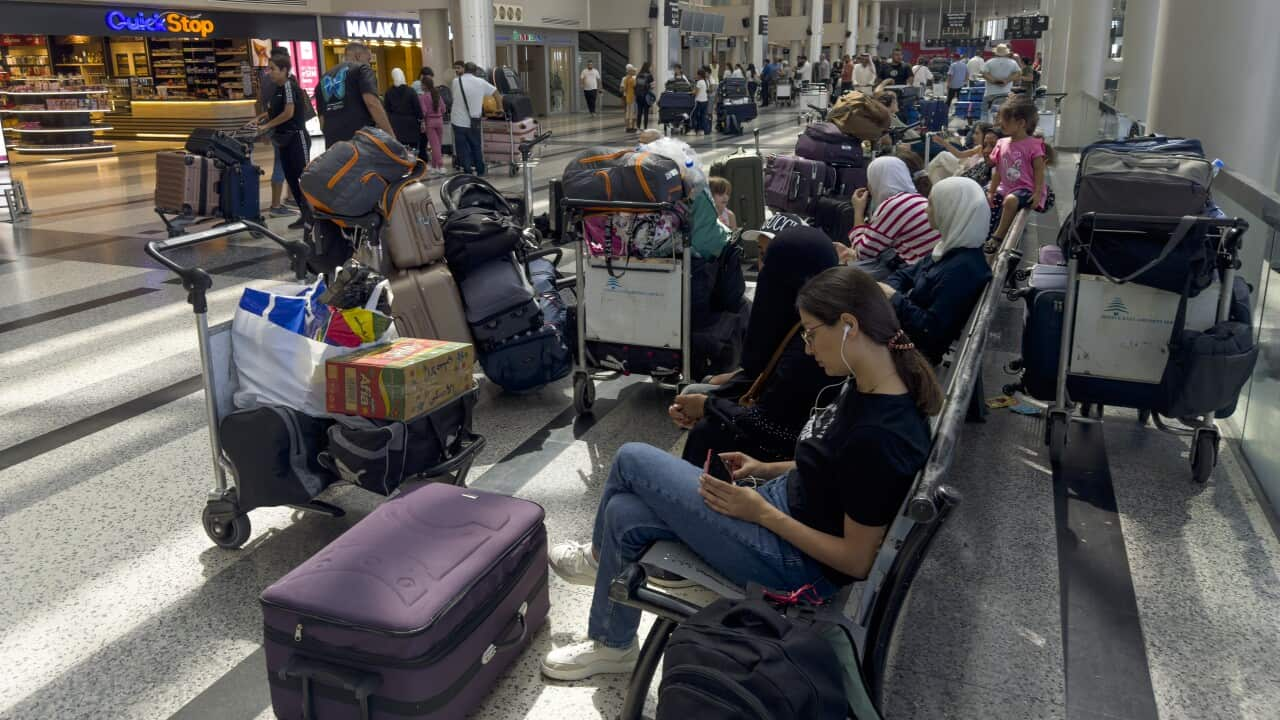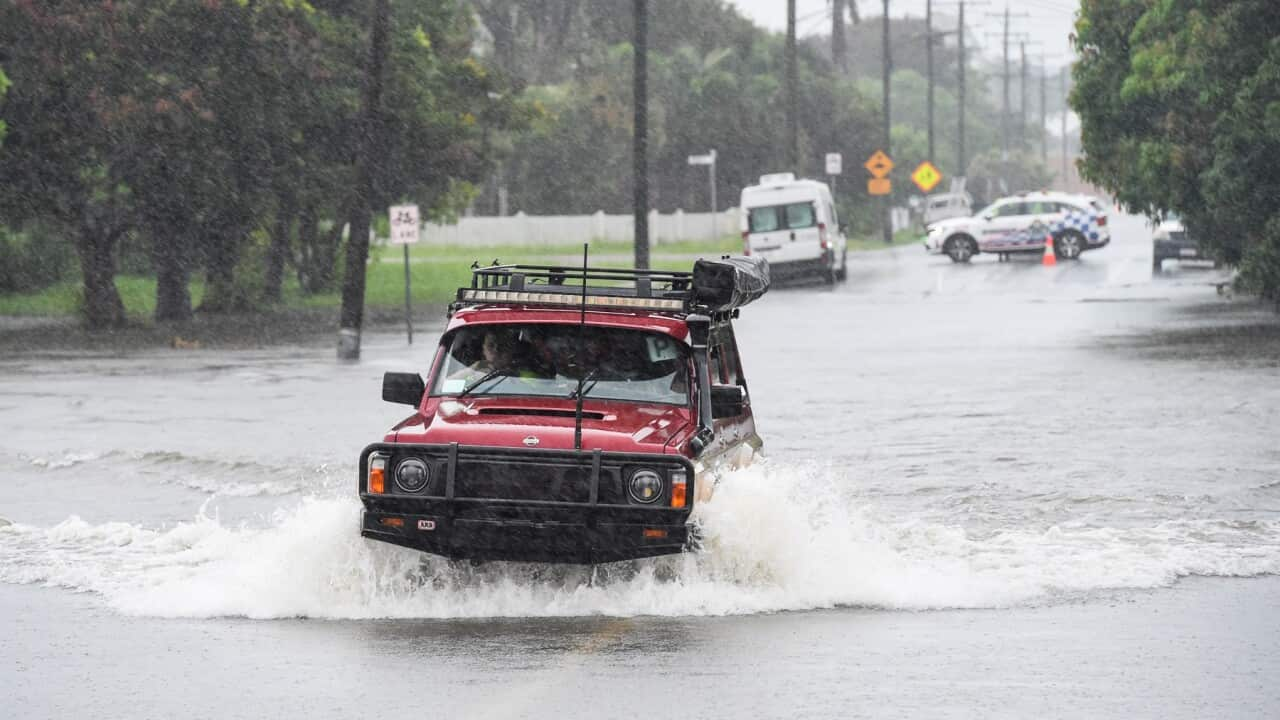TRANSCRIPT
Beirut-Rafic Hariri International Airport is Lebanon's only airport.
It has been targeted in the country's civil war, and previous fighting with Israel - including in the last war between Hezbollah and Israel in 2006.
And now there are new flight disruptions, with multiple airlines announcing cancellations or delays due to security concerns, and added insurance risks.
It has been triggered by missile strike in the Golan Heights that killed 12 people, the deadliest in Israel or Israeli-annexed territory since the Hamas October 7 assault sparked the war on Gaza.
It has added to concerns that Israel and the Iran-backed Hezbollah group could engage in a full-scale war.
Usually based in Chile, doctor Ivan Cafarella was due to fly out of Beirut and is now stranded at the airport.
“The truth is that we feel very safe. We don't feel fear, we don't feel nothing, we don't feel worried. Just only, we came here to the airport today, and we found some flights are delayed but we are waiting for our flight, it's at 5:25 p.m. London, but we are waiting. But that is the only fear we feel at this moment."
Hezbollah and the Israeli military have increased cross-border exchanges of fire since the Gaza war began.
That has disrupted flights and shipping across the region.
Germany's Lufthansa had already suspended night-time flights to and from Beirut for the entire month of July due to "current developments" in the Middle East.
Other airlines now impacted include: Lebanon’s Middle East Airlines, Turkey-based budget carrier SunExpress, Turkish Airlines subsidiary AJet, Ethiopian Air and Greek carrier Aegean Airlines.
Australia has joined 11 nations in updating their travel advisories, citing the "volatile security situation" as the reason for the advice for citizens to cancel travel to Lebanon.
And Australians in Lebanon have been urged to "leave immediately while commercial flights remain available".
With the possibility of the Beirut airport closing, and higher ticket prices for remaining flights, Prime Minister Anthony Albanese is warning that the government may not be able to provide assistance to those who leave it too late to depart.
“The travel advice very clearly is don't go to Lebanon. That is the travel advice; and also that people who are there, who are Australian citizens should ensure that they take advantage of the commercial flights that are available out of Lebanon at this time. This is a troubling area. We have been issuing these travel warnings for many months now. And it is important that people are cognisant of those warnings."
India, Denmark, Sweden, Norway, Ireland, Belgium, Germany, the Netherlands, the UK and the US have issued similar warnings, urging citizens to leave Lebanon and avoid travel there.
Sydney-based travel agent Maria Tadros says she has been receiving a lot of calls from customers wanting to change their travel plans.
“Everyone's on edge. Don't get me wrong. I woke up to so many messages, missed calls. Yes, people are on edge. People are wanting for me to change their flights to bring them back home earlier. That is possible. It is not that it is not possible. But unfortunately because of flights are in and out - and Emirates and Qatar have not been told that it is an emergency situation. But unfortunately, they have to pay a fee to change. I am not sure if you are are aware that all travel insurance has been suspended from last year. So anyone travelling to Lebanon are travelling with no travel insurance. So this is another risk they took to travel to Lebanon."
Middle East scholar at the Australian National University, Ian Parmeter was formerly Australia’s ambassador to Lebanon.
He says there as many as 30,000 Australians in Lebanon for the summer holiday season.
“At this time of year, there is a very large number of Australians of Lebanese background who take holidays in Lebanon. They go back to see family; or simply to enjoy a Mediterranean holiday. Lebanon is very beautiful in the summer time, as I know from living there. The upshot is that there could be at least 30,000 Australians who may be there. And if Israel starts attacking Lebanese infrastructure, there could be a rush to try and get out. And planes may not be prepared to land in an environment where there might be Israeli missile and air attacks occuring. In 2006, the airport was bombed. And the airport was unusable for several months. And the only way that Australians were able to get out in the end was by sea, which really took some time for that to happen."
He says it would be a mistake to ignore the updated advice to avoid travel to Lebanon.
“The reality is Israel is determined to make Hezbollah desist from attacking Israel. Israel also has great concern because about 60 or 70,000 Israelis from northern Israel have had to evacuate their homes because of missiles, rockets and drones fired across the border by Hezbollah (into northern Israel). It is a very difficult situation generally - and it would be most unwise for Australians to be travelling there. Even though they have made their plan some time before - they will be going into a very dangerous area if they go."













